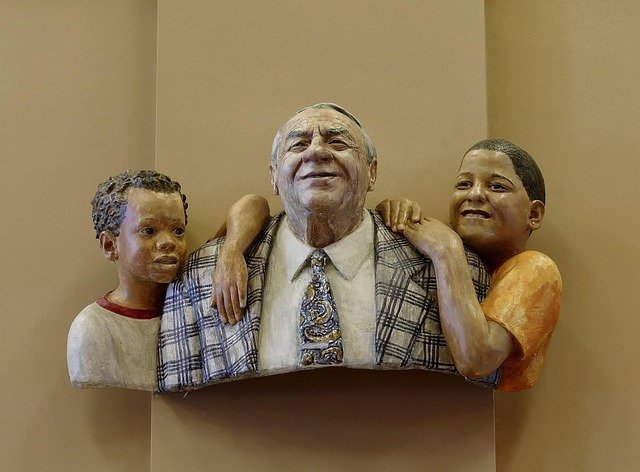Understanding Muslim Dating Culture in France – A Modern Perspective
In France, Muslim dating has evolved into a respectful and meaningful way for individuals to connect while maintaining cultural and religious values. The concept often combines tradition with modern communication, allowing people to explore compatibility through shared beliefs and lifestyle choices. This overview highlights how Muslim dating is approached in France today and the importance of understanding its cultural context. Learn more

Muslim dating in France represents a fascinating convergence of religious tradition and modern Western lifestyle. Young Muslims often find themselves balancing the expectations of their families and faith communities with the dating norms prevalent in French society. This dynamic creates a distinctive approach to relationships that differs significantly from both traditional practices in Muslim-majority countries and mainstream French dating culture.
How Does Muslim Dating in France Differ from Traditional Practices?
Muslim dating in France has evolved considerably over recent generations. While traditional arranged marriages remain common in some families, many young Muslims now prefer to have a say in choosing their partners. This shift has led to practices that honor Islamic principles while embracing personal choice. The concept of halal dating has emerged, where couples get to know each other with the intention of marriage, often with family awareness and involvement. Unlike conventional dating, physical intimacy before marriage is generally avoided, and meetings may occur in public spaces or with chaperones present. However, the degree of adherence to these practices varies widely depending on individual beliefs, family background, and level of religious observance.
What Are the Cultural Aspects of Muslim Relationships in France?
The cultural aspects of Muslim relationships in France are shaped by multiple influences. French secularism, known as laïcité, creates an environment where religion is largely kept separate from public life, yet Muslim families often maintain strong cultural and religious identities at home. This duality means young Muslims frequently navigate two distinct cultural codes. Family honor and community reputation play significant roles in relationship decisions, with parents often expecting to be involved in the partner selection process. Gender roles, while evolving, still reflect traditional expectations in many households, though second and third-generation French Muslims often adopt more egalitarian views. The importance of shared faith cannot be overstated, as religious compatibility is typically considered essential for long-term relationship success.
Why Are Faith-Based Connections Important in Muslim Dating?
Faith-based connections form the cornerstone of Muslim dating practices because Islam provides comprehensive guidance on relationships and marriage. For practicing Muslims, finding a partner who shares their religious values ensures alignment on fundamental life decisions, from daily prayer routines to raising children within the faith. Faith-based connections also facilitate family acceptance, as parents are more likely to approve of relationships where both partners demonstrate commitment to Islamic principles. Many Muslims use faith-oriented matchmaking services, community events at mosques, or Muslim-specific dating apps to meet potential partners who share their religious priorities. These platforms allow individuals to be upfront about their faith expectations, reducing potential conflicts later in the relationship.
What Characterizes Modern Muslim Dating Practices?
Modern Muslim dating practices in France reflect a blend of tradition and innovation. Technology has transformed how Muslims meet, with apps like Minder, Muzmatch, and Salaam Swipe gaining popularity among young French Muslims seeking partners. These platforms allow users to specify their level of religious observance, helping match individuals with compatible faith perspectives. Speed-dating events specifically for Muslims have also emerged in major French cities, providing structured environments for meeting potential partners. Many young Muslims practice what might be called intentional dating, where relationships are pursued with clear marriage intentions rather than casual exploration. Communication with families earlier in the relationship process has become more common, with some couples introducing their families after just a few meetings if they feel compatibility.
How Do French Muslims Navigate Understanding Dating Traditions?
Understanding dating traditions requires French Muslims to reconcile multiple cultural frameworks. Many face the challenge of explaining Islamic dating practices to non-Muslim French friends who may not understand restrictions on physical intimacy or the involvement of family in relationship decisions. Conversely, they must also educate more traditional family members about the realities of dating in contemporary France. This educational process goes both ways, with younger generations helping their parents understand modern approaches while parents share wisdom about maintaining religious values. Interfaith relationships present particular challenges, as Islam traditionally requires Muslim men to marry women of Abrahamic faiths, while Muslim women are expected to marry Muslim men. However, these boundaries are increasingly questioned by younger, more liberal Muslims who prioritize personal connection over strict religious rules.
Conclusion
Muslim dating culture in France continues to evolve as each generation finds new ways to honor their faith while embracing their French identity. The landscape is diverse, ranging from strictly traditional approaches to more progressive interpretations of Islamic dating principles. What remains constant is the importance most French Muslims place on finding partners who respect their religious values, even as the methods for meeting and getting to know potential spouses modernize. Understanding this culture requires recognizing that there is no single Muslim dating experience, but rather a spectrum of practices shaped by individual faith, family expectations, and personal values. As French society becomes increasingly multicultural and Muslims continue to be an integral part of the national fabric, these dating practices will likely continue adapting while maintaining core Islamic principles.




